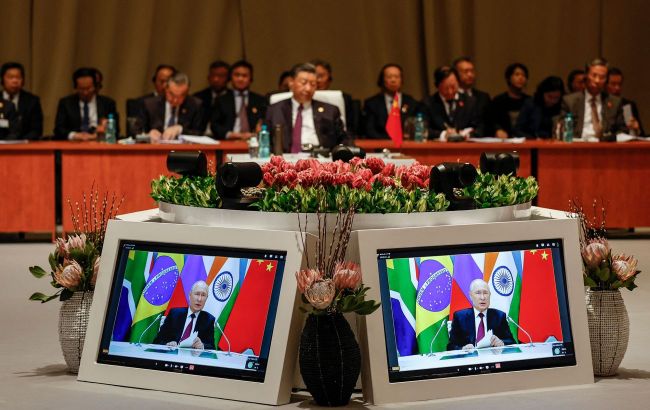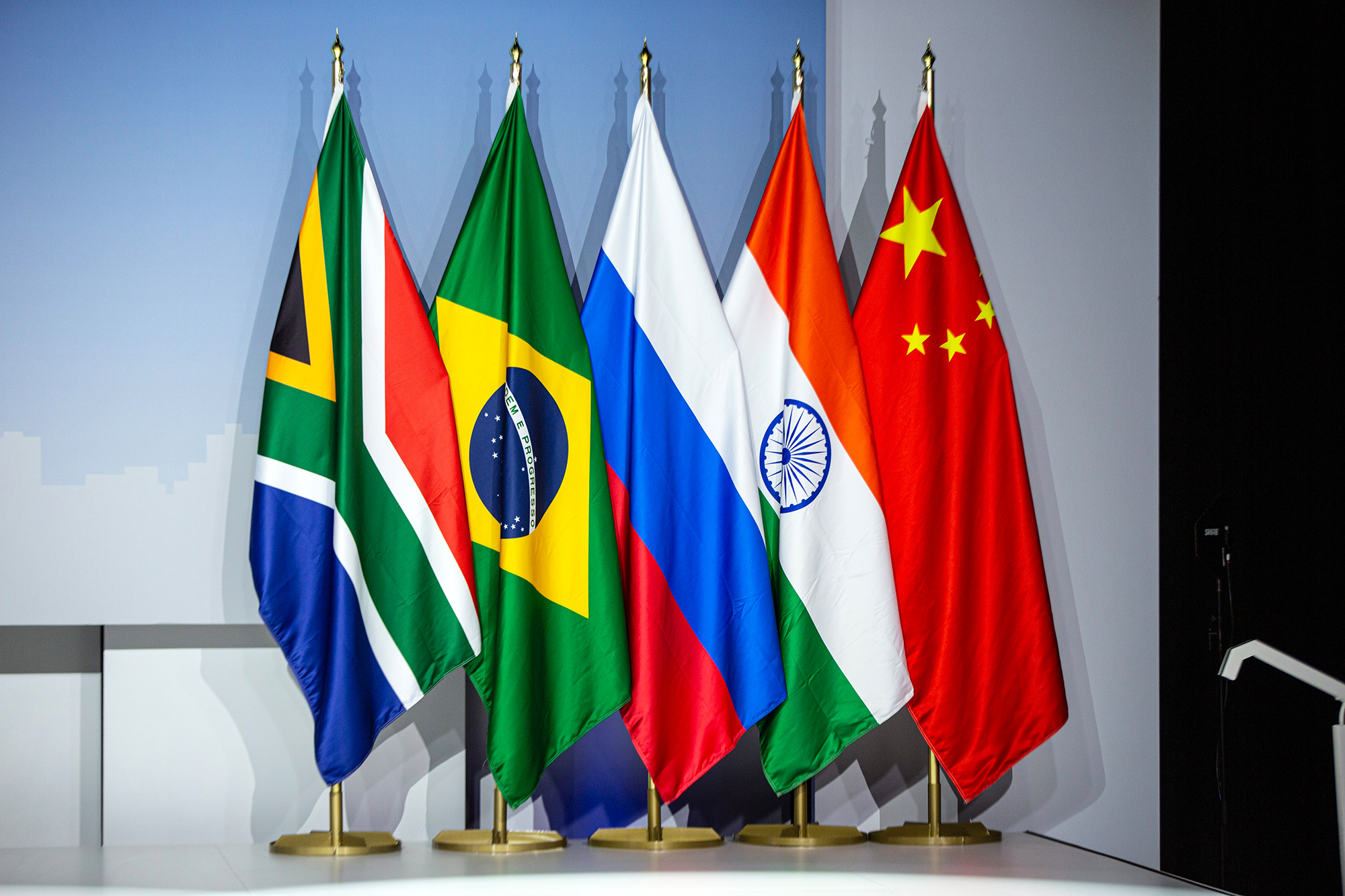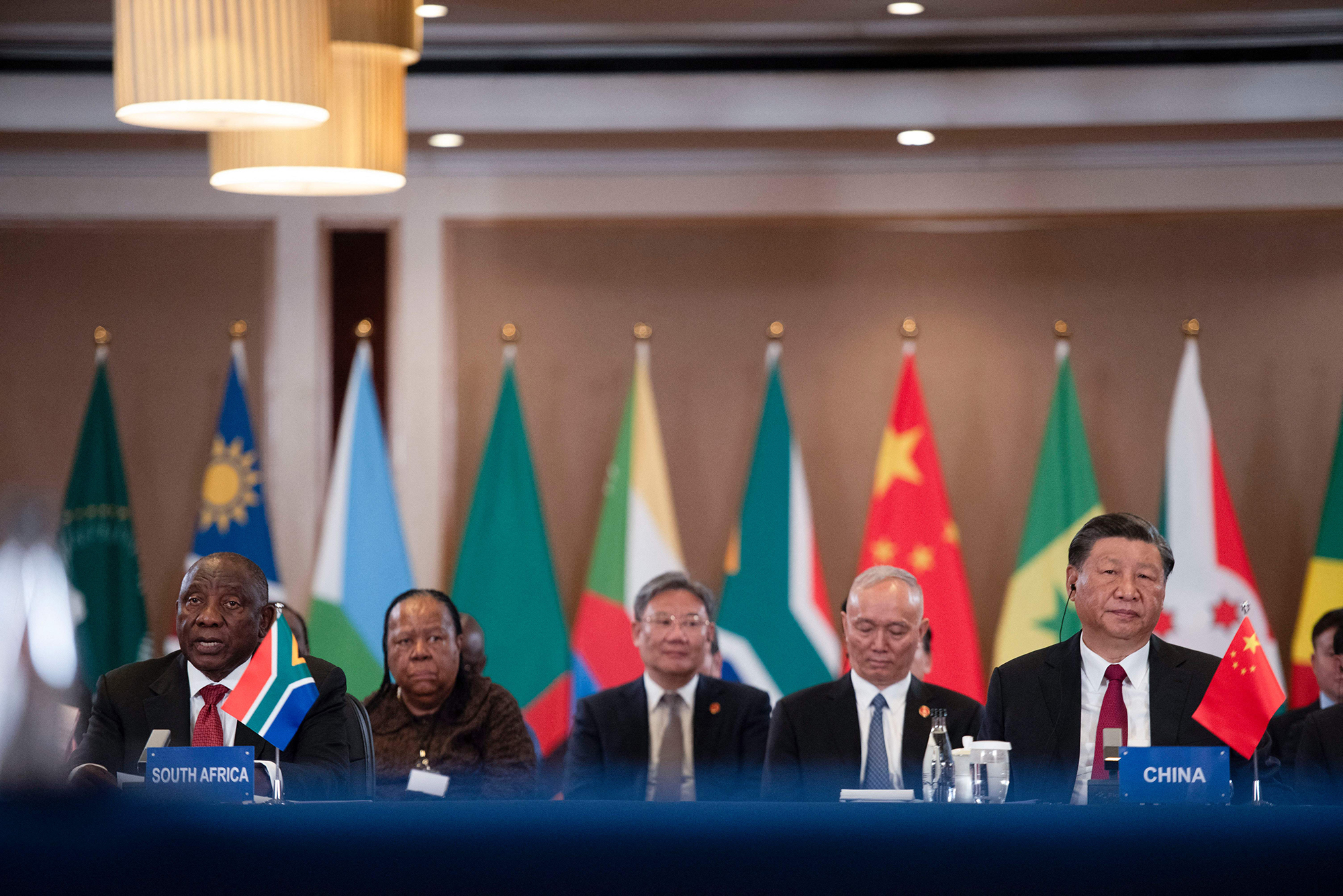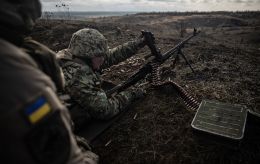Alliance countering West: What BRICS is and which countries are part of it
 Photo: Putin's speech at the BRICS summit (Getty Images)
Photo: Putin's speech at the BRICS summit (Getty Images)
The BRICS alliance unites developing countries for geopolitical and economic cooperation. Over the past year, the number of its members has doubled, and further expansion of the bloc is planned at the summit in Russia in October 2024.
RBC-Ukraine explains what you need to know about BRICS, which countries are members, and who wants to join the alliance.
Contents
- What BRICS is and who founded it
- Members of BRICS and countries seeking to join
- Significance and activities of the alliance
- Russia to host BRICS summit 2024
What BRICS is and who founded it
The acronym BRICS stands for Brazil, Russia, India, China, and South Africa.
It is an international alliance that unites the largest countries by area and population with developing economies. Until 2011, it was known as BRIC.
The term was first proposed by Jim O'Neill, chairman of the American bank Goldman Sachs, in 2001. In his research paper, he highlighted the economic growth potential of Brazil, Russia, India, and China, using the abbreviation BRIC.
However, the alliance of these states was established in 2006 at Russia's initiative. BRIC representatives began interacting at the St. Petersburg Economic Forum. The first meeting of the foreign ministers of the four countries was initiated by Kremlin leader Vladimir Putin in September 2006 at the UN General Assembly in New York.
In 2009, the first official summit of the bloc at the leaders' level took place in Yekaterinburg. Since then, heads of state and government from the member countries have been meeting annually, with each country taking on the presidency for one year.

Photo: Russia initiated the creation of BRICS (Getty Images)
From an informal club aimed at increasing the investment opportunities of its member countries, BRICS has evolved into a geopolitical bloc that is often seen as a competitor to the G7 and other groupings led by the US and Western European countries. The alliance focuses on economic cooperation, enhancing multilateral trade, and development.
Members of BRICS and countries seeking to join
The organization has expanded several times. In 2011, South Africa joined the founding states Brazil, Russia, India, and China.
Iran, Egypt, Ethiopia, and the United Arab Emirates joined BRICS on January 1, 2024.
The alliance currently has 9 members, but over 40 countries have expressed interest in joining, with 15 countries having formally applied for membership. Among these are Kazakhstan, Belarus, Pakistan, Cuba, and Palestine.
According to Reuters, countries showing interest in joining BRICS view it as an alternative to global organizations dominated by traditional Western states, hoping that membership will offer benefits such as development funding, increased trade, and investment.
On September 2, 2024, it was reported that Turkey applied to join BRICS. According to Bloomberg sources, President Recep Tayyip Erdoğan's administration made this decision amid frustration over a lack of progress in EU accession and partly as a result of disagreements with other NATO members, following Turkey’s close ties with Russia since its invasion of Ukraine in 2022.
In late August, Azerbaijan applied to join BRICS as part of a strategic partnership declaration with China.
Argentina, which was invited to join the alliance in 2023, declined membership after Javier Milei became president of the country.
Saudi Arabia was also invited to join BRICS, but a final decision has yet to be made.
Significance and activities of the alliance
Currently, BRICS countries together account for about 30% of the world's land area, 45% of the global population, and one-third of the global GDP. Additionally, members hold over 40% of the world's oil reserves.
The organization aims to have a greater influence and representation in key global institutions such as the International Monetary Fund and the World Bank.
BRICS established the New Development Bank to finance infrastructure projects. Since its creation in 2016 until the end of 2022, it has provided nearly $33 billion to developing countries for the construction of new roads, bridges, railways, and water supply systems. In comparison, the World Bank allocated $72.8 billion to partner countries in 2023 alone.
For several years, BRICS members have discussed the creation of a common currency as an alternative to the dollar, but there is no consensus on this issue.
Experts cited by BBC note that creating a common currency for BRICS countries would be impractical due to their vastly different economies. However, it is possible that "in the future, they may consider creating a currency for international trade payments or a cryptocurrency for international trade."
Analysts emphasize the importance of BRICS expansion, as the number of members has doubled over the past year. The inclusion of energy-producing countries could provide the bloc with more opportunities to challenge the dominance of the dollar in oil and gas trade by transitioning to other currencies.
However, Bloomberg Economics experts argue that the expansion is more about politics than economics.
The expanded alliance could become a stronger counterweight to the G7 (USA, Canada, France, Germany, Italy, Japan, and the UK).
Thus, China aims to build an alternative global order by pulling countries from the Southern Hemisphere into its economic orbit, challenging US hegemony.
Meanwhile, Russia, isolated by US and EU sanctions due to the war in Ukraine, also seeks to diminish Washington's global influence.

Photo: China seeks BRICS expansion (Getty Images)
It is worth noting that BRICS countries have generally maintained a neutral stance on the full-scale war in Ukraine, viewing it more as a regional issue rather than a global crisis.
Russia to host BRICS summit 2024
This year, Russia is the chair country for BRICS and will host the 16th summit in Kazan from October 22-24, 2024, at the level of heads of state and government.
Russian media report that 36 countries have been invited to the meeting, with 18 already confirming their participation. According to BBC analysts, Russian President Vladimir Putin aims to demonstrate that he still has friends and allies worldwide despite the full-scale invasion of Ukraine.
Among the expectations for the summit, President Putin has highlighted the enhancement of BRICS's role in the international financial system; the development of cooperation between banks; and the promotion of collaboration between the tax and customs authorities of member countries.
The summit will also address issues regarding the expansion of the bloc, including the potential membership of Turkey, Kazakhstan, Azerbaijan, Malaysia, and Thailand, which have applied to join.
It is worth noting that the previous BRICS summit took place in August 2023 in Johannesburg, South Africa. President Putin did not attend the meeting in person and spoke online, having refrained from traveling following the International Criminal Court's arrest warrant issued against him.
Sources: Bloomberg, Reuters, BBC, the official BRICS 2024 summit page, and Wikipedia.

